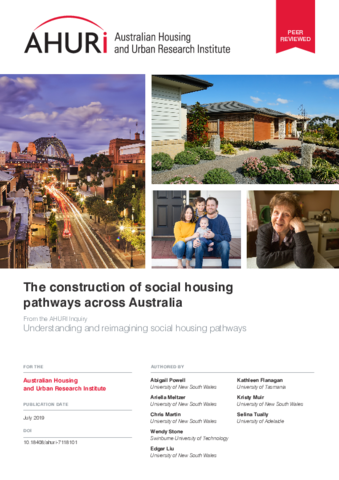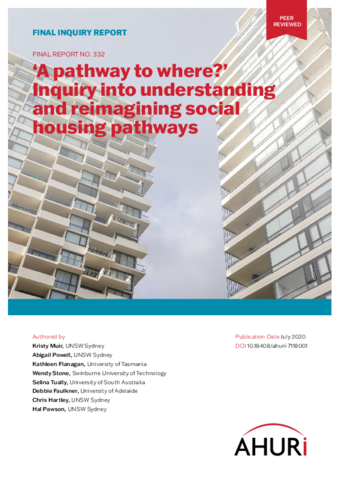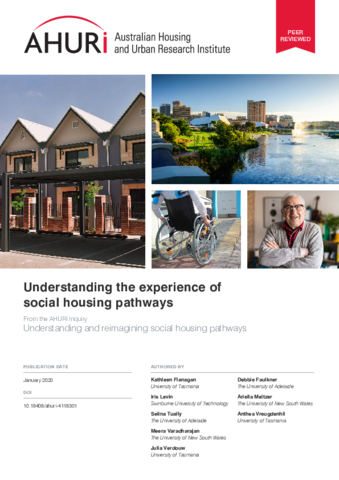This research explores the ways households experience pathways into, within and out of the Australian social housing system.
In academic literature, ‘pathways’ is a concept used to describe changes in a household’s experiences of housing over time. In policy, ‘pathways’ is a way to promote mobility through the system and increase ‘independence’ on the part of social housing tenants. ‘Independence’ in this context is constructed with reference to a capacity to maintain private market housing.
Pathways into, within and out of social housing are governed by policies and procedures that determine eligibility and priority, regulate the process of internal transfers, and control continued rights to occupancy. This research found that these processes do not always function or interact as they should.
The extreme rationing that marks access to social housing means that decision-making about who is allocated housing inevitably raises questions of deservingness among providers and tenants. Ideas and norms about who ‘deserves’ social housing form a context against which systemic failure play out,.
Without significant reform of the private rental market and much better resourced and comprehensive support for tenants than is currently available, a policy encouraging or enforcing transitions out of social housing and into the private rental market is problematic and inappropriate. Policy-makers need to think holistically about what people need to flourish outside the social housing sector, including affordable housing, secure employment and appropriate services.




